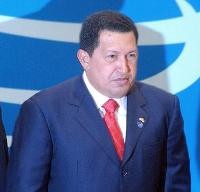When then-Col. Hugo Chávez launched a military coup against the civilian government of Venezuela in 1992, he had not yet grasped the potential value of winning a democratic election. Luckily for Chávez, his coup attempt failed, and he survived to play the democracy game. Today, 12 years after winning his first election for what at the time was meant to be a single five-year presidential term, Chávez has become a master of the game, writing and rewriting the rules, and testing the willingness of his followers to believe they still live in a democratic country. There is no certainty, however, that Venezuelans will continue to accept that claim.
Just last week, Chávez obtained the right to rule by decree, allowing him to circumvent the opposition's ability to block him in the parliament. Now, at a time when Venezuela is struggling with a stubborn economic recession and a spiraling wave of violence, the Venezuelan people will find it much more difficult to believe their country is a democracy. Ultimately, that could pose a severe challenge to Chávez's plans to stay in power for the foreseeable future, because Venezuelans, a new poll reveals, care deeply about democratic values.
The charismatic Chávez is an admirer of non-elected revolutionaries such as Fidel Castro. But at some point in his career, he discovered that democracy offered him a path to power burnished with a fortifying coat of legitimacy. When he ran for president and won the majority of the vote in 1998, no one could dispute that he had earned the right to govern Venezuela. Since then, however, Chávez has written, rewritten and revised the constitution, mostly to extend his stay in power. But even as he attempted to up-end the Venezuelan economic, social and political systems, Chávez always tried to at least appear as though he was following the rules of democracy. He has used his power to rig the system, to intimidate and even imprison his critics, and to shut down much of the opposition media. But just as democratic legitimacy has strengthened Chávez's rule, over the course of Chávez's tenure in office, the appeal of democracy has grown, potentially complicating his own plans.

